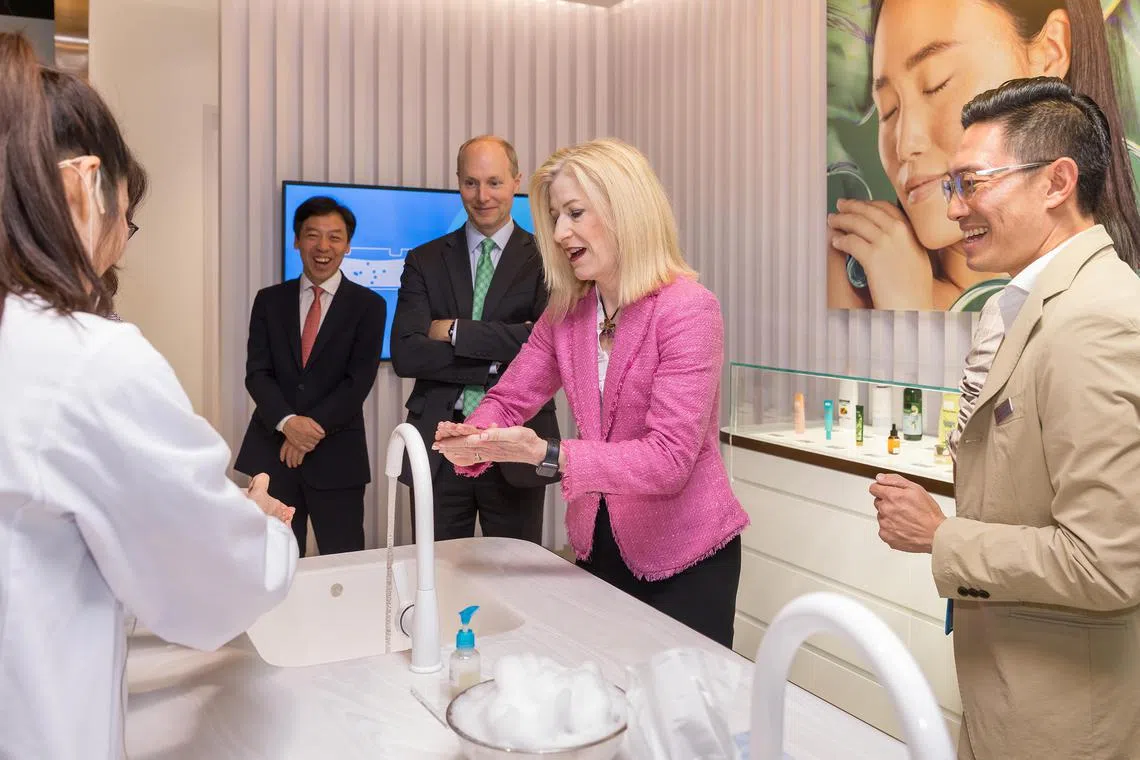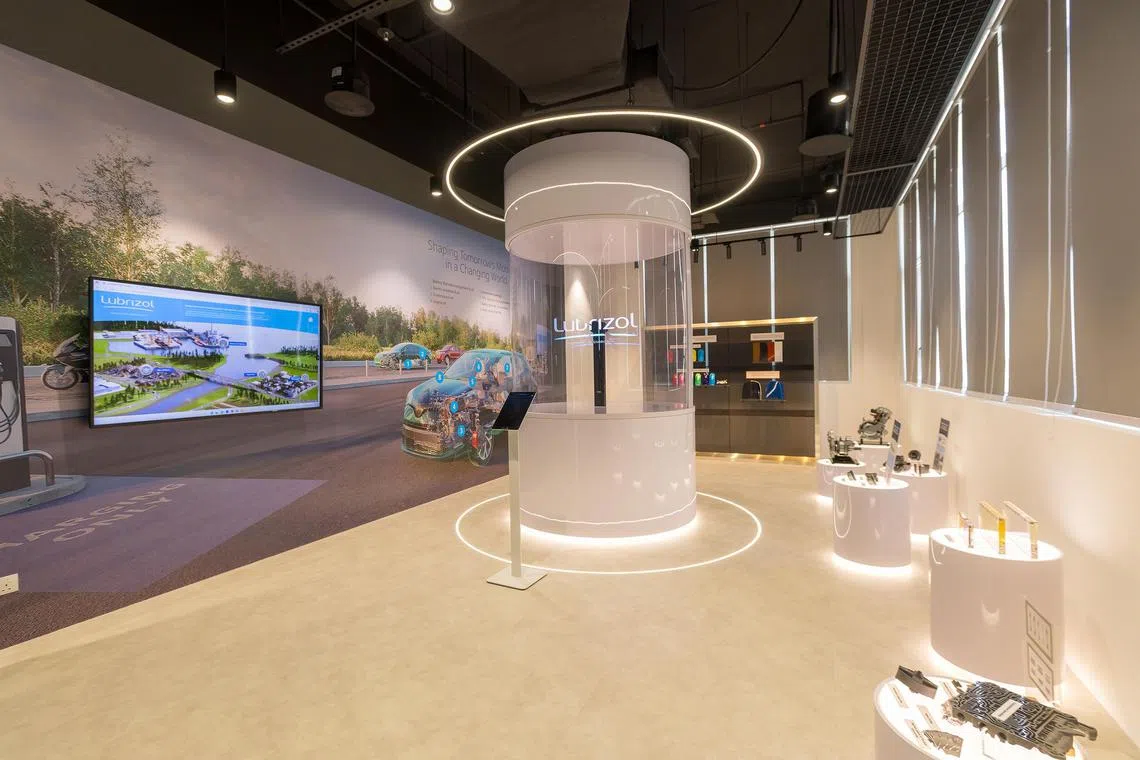American speciality chemicals firm Lubrizol expands in Singapore with launch of innovation centre
Sign up now: Get ST's newsletters delivered to your inbox

Ms Rebecca Liebert, Lubrizol Corporation's President and CEO (second from right), using a hand wash developed with Lubrizol's ingredients.
PHOTO: LUBRIZOL
Megan Wee
Follow topic:
- Lubrizol, a Berkshire Hathaway subsidiary, is expanding its R&D capabilities in Singapore with a new innovation centre.
- The expansion is expected to create more R&D jobs in Singapore, supporting the speciality chemicals sector's growth.
- The US company will sign an agreement with the EDB as it commits to growing its activities here over the next five years.
AI generated
SINGAPORE – From skincare product ingredients to the lubricant additives used in vehicle engines, American company Lubrizol Corporation’s speciality chemicals are found in many everyday items.
Now, the Berkshire Hathaway subsidiary, which first entered Singapore in 1984, is expanding its research and development (R&D) capabilities here with the launch of its new South-east Asia Innovation Centre on July 23.
Spanning 15,000 sq m over multiple floors, the new centre in Jurong features immersive experience zones, virtual reality display, and dedicated spaces for technical training and knowledge sharing.
The advanced laboratories in the facility will be used by scientists and product developers for R&D, allowing them to design and test solutions for customers across a wide range of industries, from mobility and infrastructure to beauty and personal care.

An exhibit showcasing Lubrizol’s mobility products at the company’s new innovation centre.
PHOTO: LUBRIZOL
The innovation centre adds to Lubrizol’s existing administration office and manufacturing plant in the vicinity.
“Singapore plays a pivotal role in our global innovation network because of its robust R&D ecosystem and unique environment that enables innovation to thrive,” said president and chief executive of Lubrizol Corporation, Ms Rebecca Liebert.
Headquartered in the US, Lubrizol has over 100 manufacturing facilities, sales and technical offices globally. It hires more than 7,000 people, with over 800 employees in the Asia-Pacific region.
While the company declined to share its current staff strength in Singapore, more R&D jobs are expected to be created with the launch of the new innovation centre, said Mr Paul Nai, managing director of Lubrizol South-east Asia.
The launch of the centre is supported by the Economic Development Board (EDB).
Lubrizol is expected to sign an agreement with the EDB as it commits to grow its activities in the region over the next five years.
“The energy and chemicals industry is a key pillar of Singapore’s economy, with the speciality chemicals segment emerging as a key engine of growth and job creation in recent years,” said Mr Lim Wey-Len, EDB’s executive vice-president.
“This growth is driven by global trends such as the shift towards sustainability, rising demand for high-performance materials across end markets like electronics, automotive and personal care, and the increasing importance of Asia as a manufacturing and innovation hub,” he added.
Mr Lim said the investments in the speciality chemicals sector over the past two years are expected to create at least 400 jobs in the coming years.

Ms Rebecca Liebert, Lubrizol Corporation’s president and CEO (fourth from right) and Mr Henry Liu, Lubrizol SEA’s VP for Asia-Pacific (third from left) unveiling a plaque at the company’s new innovation centre.
PHOTO: LUBRIZOL
These include roles in manufacturing operations, R&D and innovation, process engineering, sustainability and corporate functions for both fresh graduates and experienced hires, he added.
Mr Samuel Tung, 28, an account manager with Lubrizol South-east Asia, said he decided to pursue a career in the speciality chemicals sector upon graduation, so he can witness first-hand how science can be translated into real-life solutions.
Ms Jolyn Thang, 29, who works as a technical service scientist with the company, said she sees strong career growth opportunities in this sector, as the rise of Korean and Japanese beauty trends has driven demand for a wider variety of beauty products.

